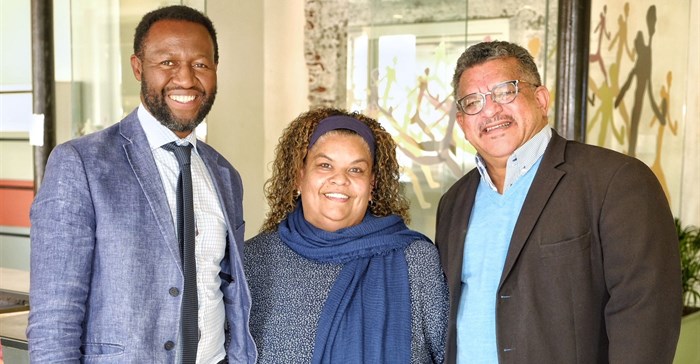






Practically, resilience means making do with the resources that people have, to the maximum, with imagination. Even in an under-resourced community, people could be good mediators in addressing gang warfare, or they may have valuable skills from previous employment.
“The real challenge is to get someone who grows up vulnerable, is rightfully angry and feels like giving up, the agency to persevere.”
Gumede divided philanthropy into two types: Traditional ‘big’ philanthropy, mostly implemented locally or globally through major corporations or foundations. The second pillar is citizen philanthropy – ordinary individuals giving money or volunteering their time and skills.
A challenge is for ‘big’ philanthropists to support what the community identifies and prioritises ‒ there has to be a mind-set change in how philanthropists look at giving.
He urged greater corporate engagement in social justice issues. People struggle to see the importance of social justice – it can’t easily be marketed like other projects – but it is at the heart of society. They should also not shy away from the kind of issues that would strengthen democracy, such as access to information.
“Getting involved in undoing inequality often seems to be where people step aside and don’t want to engage.”
He said that citizen philanthropy is an exciting opportunity that we often miss ‒ “when ordinary individuals give their money, time or services to civil society organisations and engage publicly with issues.”
“The problem is that people feel that, as individuals, they can’t make an impact and withdraw from public engagement. The problems seem so big and they feel there is little that they can do.”
While the black middle class has more income and time, people are vulnerable – change only started after 1994. Due to poor public education and health services, such costs take up a large proportion of middle class income. People are also supporting extended family and do not think they can get involved in philanthropy.
Members of the white middle class are also concerned they could be seen as patronising black people if they become involved, or fear there is no longer space for them.
It is however important to boost citizen philanthropy, said Gumede. This can be done by encouraging people to get involved in civic engagement, for example fighting for consumer rights, teaching sport or getting involved on a school board.
He said that government could possibly improve the tax environment for giving – through a dedicated philanthropy tax for example, or tax payers could sign off a percentage of their annual income for giving. A proportion of municipal rates could also go to civil society or charity.
“In an emerging democracy, philanthropy’s role is to reduce inequality; boost social solidarity so that those who are wealthy want to help those with limited means; to promote social justice as many of our current problems have to do with issues of the past; and promote active citizenship.”